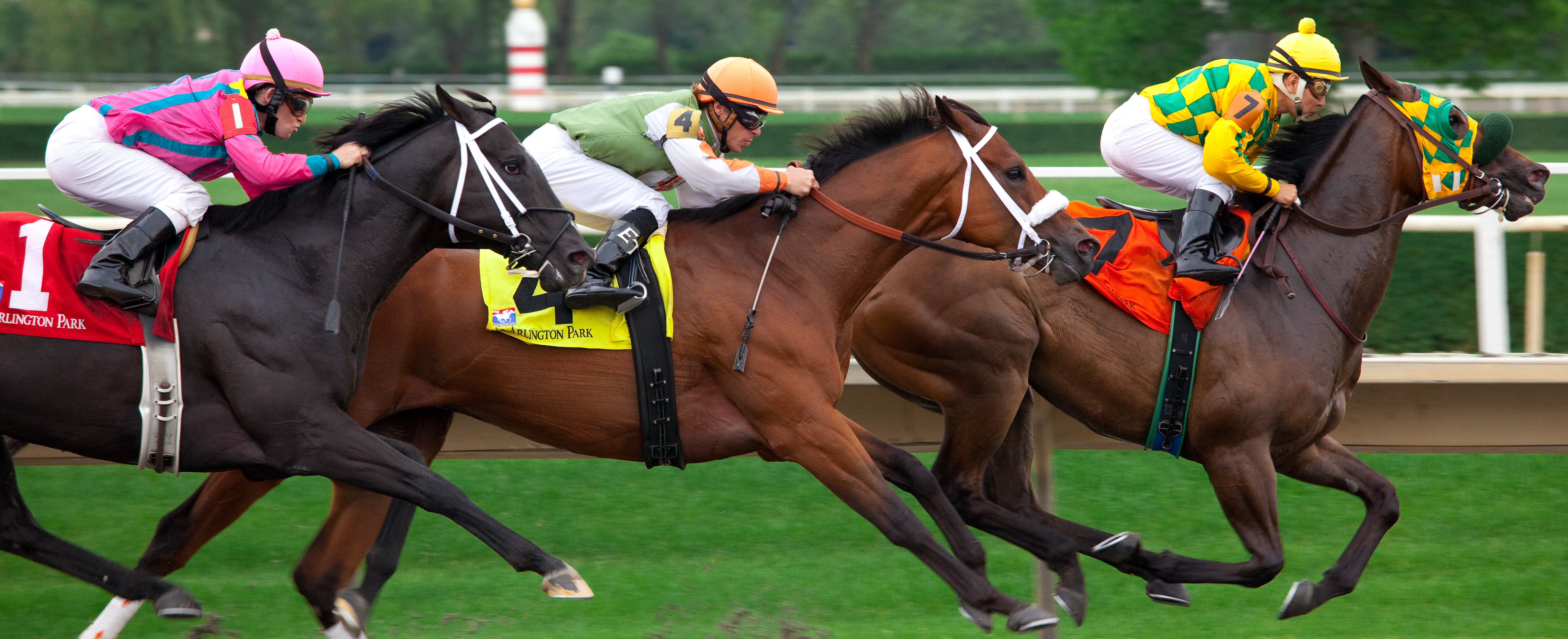These findings result from analyses of over 616,000 race times run by nearly 70,400 horses in the UK between the years of 1850 and 2012. Researchers from the University of Exeter’s Penryn Campus compiled the massive dataset in the hopes of resolving contradictory patterns reported by previous studies. In particular, they were curious about the suggestion that horses are approaching a speed plateau.

Image courtesy of Froggerlaura
Lead author Patrick Sharman, from the University of Exeter’s Centre for Ecology and Conservation, said: “There has been a general consensus over the last thirty years that horse speeds are stagnating.” However, this seems counterintuitive, given evidence that swiftness is passed down through the generations, and therefore can be selected for—and potentially enhanced—during the breeding process.
Whereas previous studies have predominantly focused on results from middle- and long-distance elite races (8-12 and 14-20 furlongs, respectively), the current dataset also looks at sprint competitions (5-7 furlongs). It also takes into account variations in environmental conditions that can influence horse performance. The full dataset, which focused on races run on flat turf in the UK, included information on race course, ground softness, number of runners, name/age/sex of each horse, race distance, method of timing (automatic or manual), year of race, and, of course, horse speed.
Although the improvements in speed were most noticeable for sprinters, modest increases were also seen amongst middle- and long-distance runners. However, year-on-year changes were not linear, indicating that they have not been consistent over time. Alterations to riding style appear to be responsible for dramatic improvements in performance during the early 1900s and in the final quarter of the 20thcentury. The first period of rapid improvement seems to have resulted from jockeys’ shortening their stirrups and crouching while riding. The second increase in speed has been associated with further shortening of the stirrups—though increased commercialisation of the sport around this same time may have led to an influx of imported horses that may have improved the quality of the gene pool.
Image courtesy of Anthony92931
Despite this tantalizing connection between genetics and speed, the study’s authors are cautious about definitively declaring that decreases in racing time result from human-caused equine evolution. For one thing, there are certain potentially confounding factors—such as horse diet and individual jockeys’ racing techniques—that they were not able to consider in the study. For another, the field does not currently have enough information on equine genetics to fully understand the impact of our horse husbandry techniques on thoroughbred racing performance.
However, the authors suggest that this could be rectified by a detailed analysis of thoroughbred pedigrees. Alastair Wilson, coauthor of the study, said: ”The next step is to find out how much of this improvement is actually down to genetic change. It could be that breeders are effectively targeting the genes that make horses fast - at least over the shorter sprint distances–and we are seeing the result of this. Alternatively, current improvement could be driven entirely by non-genetic factors, for instance improvements in training. At the moment we just don’t know. However, by analysing the performance data in conjunction with knowledge of how horses are related to each other, we should be able to determine just how important genes are for determining speed, and whether the genetic makeup of the thoroughbred population is changing through time”.
In the meantime, don’t expect sprinters to slow down any time soon. Middle- and long-distance runners may be nearing their maximal speeds, but short-distance racers could continue to break records for years to come.
--
Sharman, Patrick and Alastair Wilson. 2015. Racehorses are getting faster. Biology Letters 11(6).